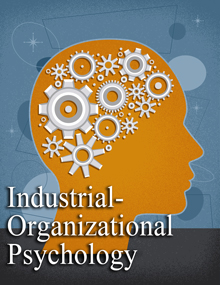
Amber Montanano BA in Liberal Studies '15 alum and current Master of Arts in Liberal Studies (MALS) degree program in Industrial-Organizational Psychology student.

Looking for an area of study that is applicable to almost every industry? The MALS degree program in Industrial-Organizational Psychology is the study of human behavior in the workplace. Course work emphasizes the application of psychological theories, principles and research to situations that are encountered within organizations.
|
|
Is There Value in a Liberal Arts Degree?
Employers and Students Alike Say "Absolutely"
In its 2015 survey, "Falling Short? College Learning and Career Success," the Association of American College's & Universities found that an overwhelming number of the 400 employers who participated, endorsed broad-based learning as the best preparation for success in the workplace. Moreover, the learning outcomes employers rated as most important included communication, teamwork, ethical decision-making and critical-thinking skills. If these skills sound familiar to Amber Montanano, there's a good reason. As a program manager for the National Board of Medical Examiners and a TESU Master of Arts in Liberal Studies student, Montanano can verify the power of the curriculum from both perspectives. In a recent interview, she talked about her motivation for pursuing her degree and the ways it is enhancing her career:
Q. What was your motivation for earning your undergraduate degree with TESU and continuing to the master's level?
Montanano: My primary motivation for earning my BA in Liberal Studies was to finally get the degree that I started years ago. In making the decision to take advantage of the generous tuition reimbursement benefit provided by my employer, I felt like I could finally afford to finish. I learned a lot earning my BA, and it also made me realize that a liberal studies degree is ideal for people who genuinely love learning. Pragmatically speaking, it is also handy in the post-recession job market to have a degree that is applicable to just about any industry. I had already considered advancing to the graduate level, so when I saw the Bachelor's to Master's Program that TESU offered, I got excited because I am someone who absolutely loves efficiency; and, what is more efficient than earning 9 credits as an undergraduate that also count toward your graduate degree? I was already invested in continuing at that point, but when I saw the new Master of Arts in Liberal Studies (MALS) degree program in Industrial-Organizational Psychology area of study, I knew I found something that suited my interests.
Q. Do you currently work in an area connected with Industrial-Organizational (I-O) Psychology?
Montanano: I think that every workplace should be connected with I-O Psychology disciplines. As a program manager at the National Board of Medical Examiners, which is an assessment-based organization, some of the more "industrial" concepts that we have reviewed in our courses were already familiar to me. These include understanding the concepts of reliability and validity in relation to staffing assessments. In the process, I became most interested in learning more about the organizational side of I-O Psychology.
Q. Tell us about your course work and the ways you anticipate applying what you are learning to your career.
Montanano: One of my recent courses focused on staffing and personnel issues, so I learned a lot about how employers use assessments in the hiring process and the legal issues that can arise during the process. My organization is mainly known for the administration of the United States Medical Licensing Examination, which medical students must pass in order to practice in the U.S. So I understand what it means to set a passing standard or ensure inter-rater reliability for a clinical skills exam, but I am also learning to apply that concept to the hiring process and performance management. The course I'm taking currently has reviewed some of those staffing issues, but we are also exploring the history and future of I-O Psychology as well as its organizational aspects, such as how to strike the appropriate work-life balance with your team and what, besides a competitive salary, can incentivize people to do their best work. Also, I manage a program called NBME-U right now, which is a set of online learning modules centered on assessment principles. I am leading the charge in developing the product to offer continuing medical education credits or certificates to medical staff and scientists who oversee education and assessment at their respective medical schools. The skills I'm learning in my course work surrounding the psychology of teamwork and team member incentives has proved to be very useful in overseeing this program.
Q. Is what you're learning causing you to look at interviewing, workplace aggression and the performance appraisal process with a new perspective?
Montanano: It is definitely changing the way that I view all three of those things. Just today I offered to join a panel of interviewers for a new position in my unit because I felt the panel needed a more unbiased opinion on the candidates. Until I was exposed to some of the concepts in my course work, I had no idea that there was actually a science behind making hiring decisions. I am particularly excited to learn more about employee engagement – what employees feel contributes to it, how to achieve it more evenly across the organization and how to make corrections if people are feeling disengaged.
Want to learn more about: The One Question To Ask Yourself If You Don't Know Which Undergraduate Degree To Earn; 5 Growing Homeland Security Careers for 2016 and Beyond or 5 Fundamental Rules for Transferring College Credit? Visit the TESU Blog page for answers and expert advice on these and other topics.
Insights Home »
|